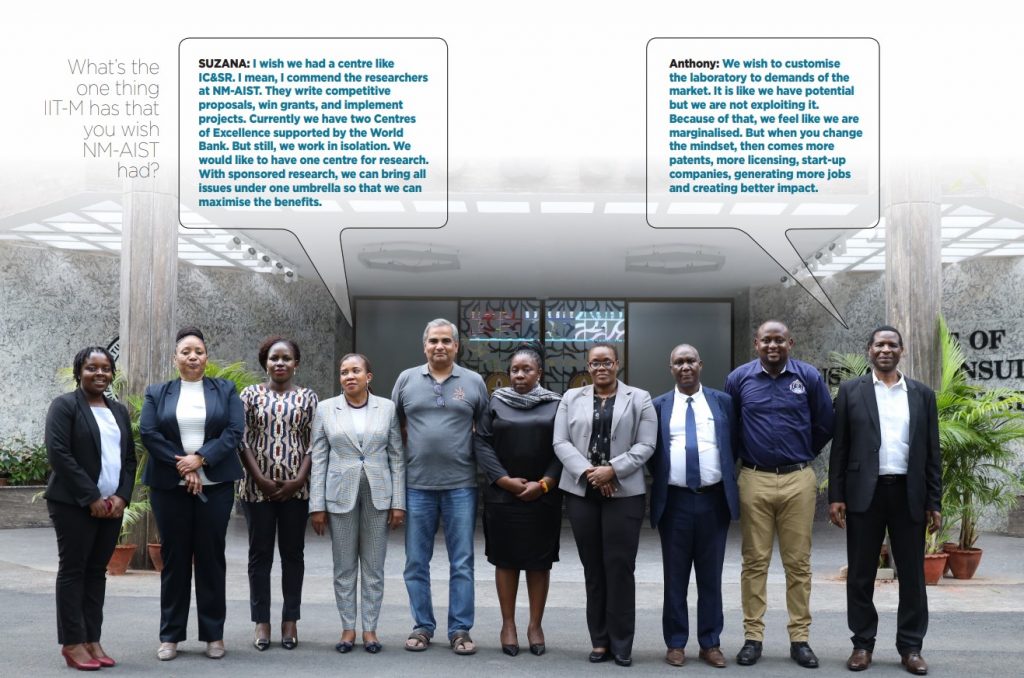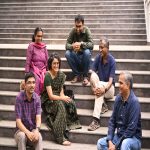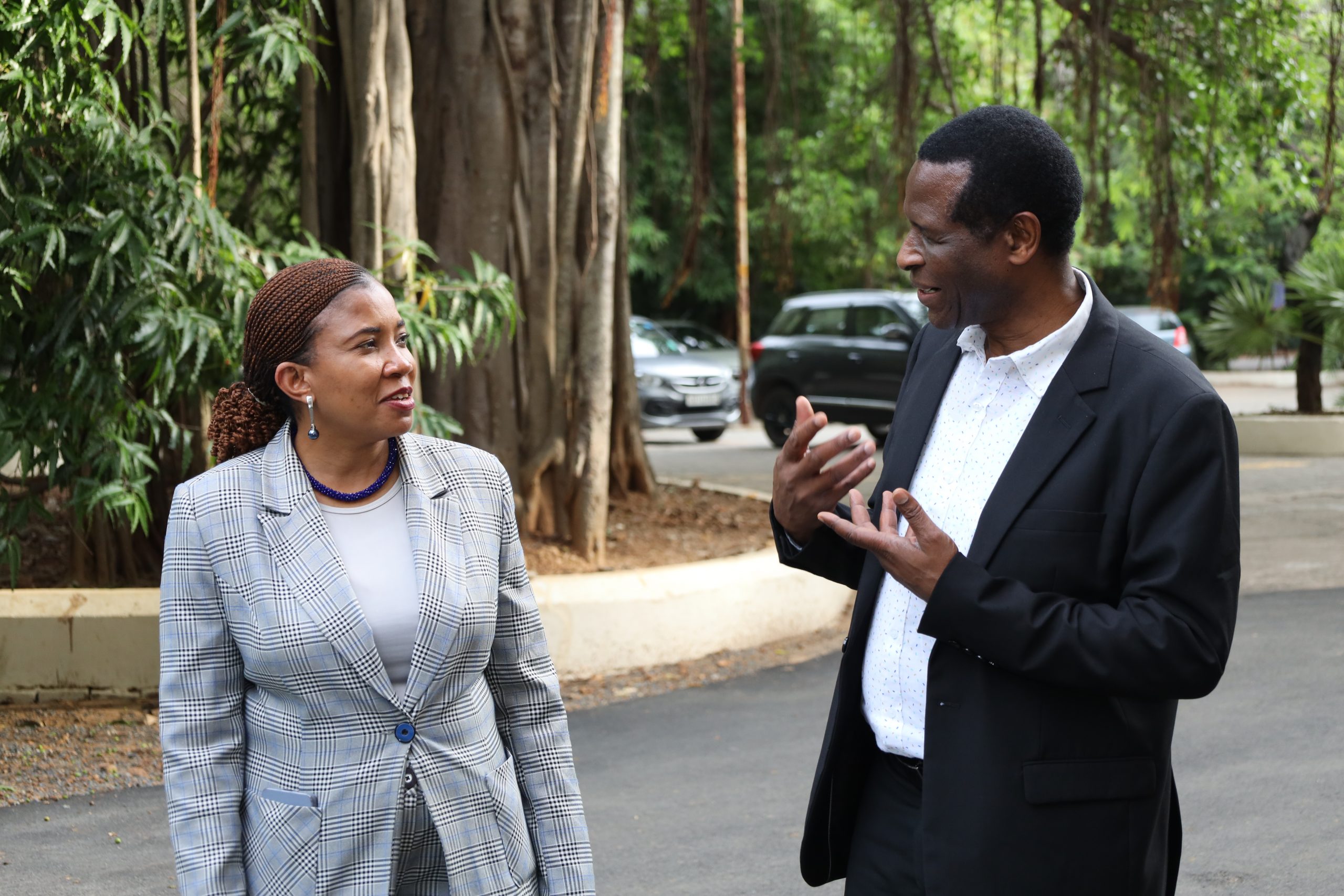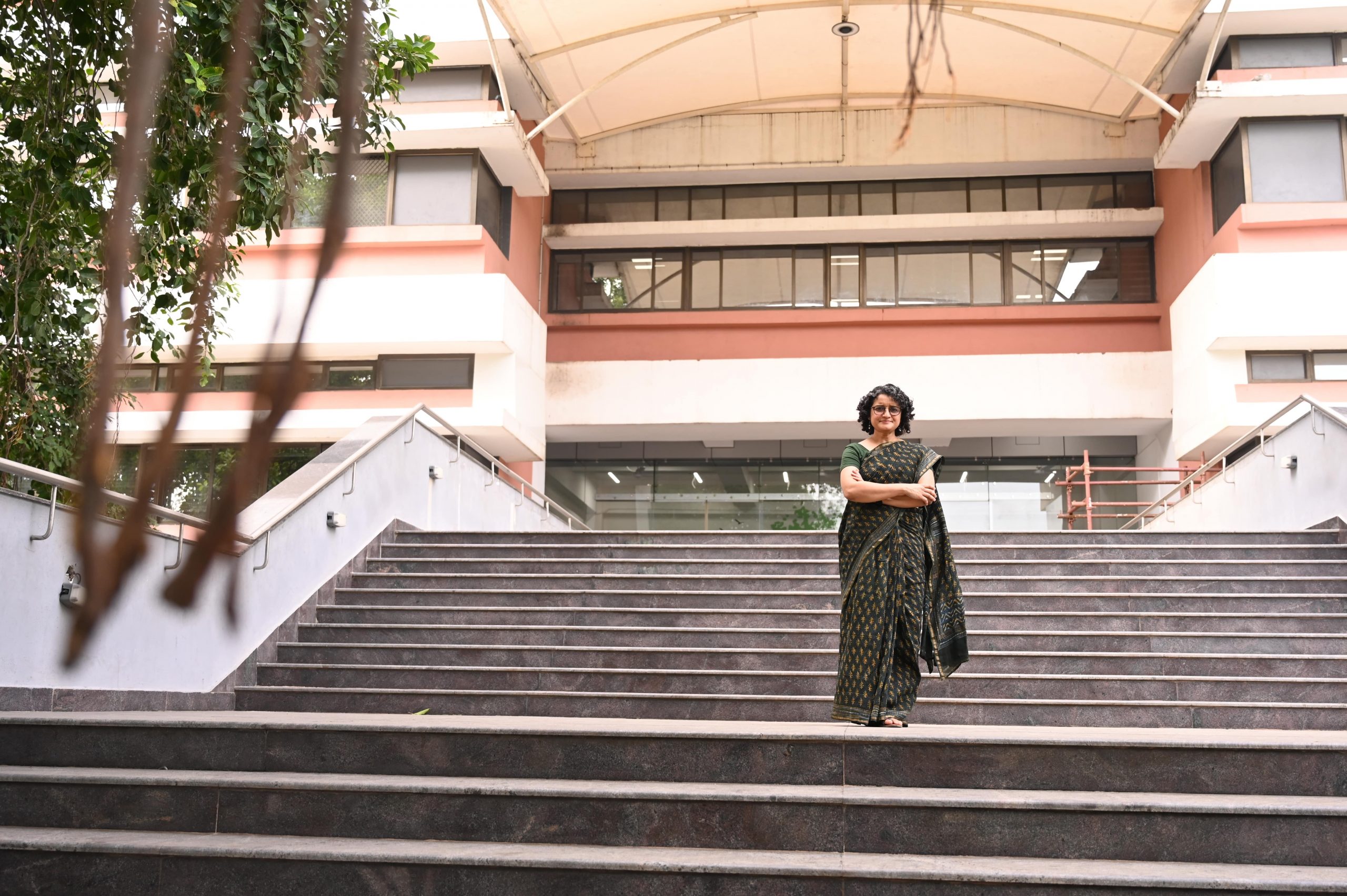As part of the efforts to strengthen ties with partner universities, IIT Madras hosted a nine-member delegation from The Nelson Mandela African Institution of Science and Technology (NM-AIST), Tanzania. The visit, whose primary goal was to gain insights from IIT-M’s successfully-implemented incubation centres, also gave the delegation an opportunity to visit Research Park to learn more about the startup ecosystem. Prof. Anthony Mshandete and Prof. Suzana Augustino, Deputy Vice Chancellors of NM-AIST, share some of the specific challenges that were addressed during the course of their visit.
By the Office of Global Engagement
Purpose of the visit
We are basically here to learn from IIT-M and to customise what we have learnt in our institution because it fits very well; we have an incubation centre just like IIT. So, this visit, for us, is like a catalyst. At the same time, we have come to learn about a global problem that academia faces. In Tanzania, we have academicians doing research, getting their PhDs, and sharing knowledge. But they need to think beyond that. During the course of this visit, we have been taught to change that traditional mindset. At IIT-M, we have been told: “Okay, I know you are here to share knowledge, but you can also commercialise it and can commercialise technology.” That is the mindset we have to borrow from IIT-M. It is important to not shy away from commercialising our knowledge in terms of science and technology. Because that is how we can make an impact in society. IIT-M seems to have learnt this from the U.S and they have brought that model to India. It is working perfectly well for your country…they are increasing the number of patents in India and abroad. We have lots to learn from this model. Because we can easily customise this back home for the benefit of our economy and the country at large.
— Anthony Mshandete
A learning curve
The
challenge
NM-AIST
faces
today is
shared
globally.
The
first of
which
was
explained
by Prof.
Anthony,
which is
the
mindset
of
faculty
members.
The
second
is on
the
research
side;
writing
competitive
research
proposals
to win
grants
has been
a
challenge,
especially
in
developing
countries. This
could be
a
potential
area
where we
can
collaborate
with
IIT-M,
especially
on
creating
a link
with the
industry
which is
the
resource
for
money.
Because
we
shouldn’t
always
rely on
the
government
to
inject
money
into
research
institutions.
After
observing
the
technologies
and
innovations
coming
from
higher
learning
institutions,
it is
about
time the
industry
contributes
towards
research
and
development.
So,
having
money
come
from the
market
and
collaborating
in the
art of
writing
proposals
are the
challenges
we have
today.
The
other
key
challenge
we have
is the
infrastructure.
This is
one area
where we
could
collaborate
with
IIT-M;
the
campus
is very
beautiful
and the
whole
setup of
this
institute
is so
amazing.
One of
the
things
that
really
impressed
us about
IIT-M is
the role
of
alumni
and the
interest
they
show in
paying
back to
the
institution
through
investments,
getting
grants,
and
facilitating
the
whole
process.
We see
the
passion
the
alumni
have for
the
mother
institution.
This is
truly an
eye
opener
for us,
and it
is
doable
even
back
home. We
haven’t
thought
about it
so far.
That
alumni
could
also pay
back.
This
could be
a
potential
area
where we
can
collaborate
with
IIT-M,
especially
on
creating
a link
with the
industry
which is
the
resource
for
money.
Because
we
shouldn’t
always
rely on
the
government
to
inject
money
into
research
institutions.
After
observing
the
technologies
and
innovations
coming
from
higher
learning
institutions,
it is
about
time the
industry
contributes
towards
research
and
development.
So,
having
money
come
from the
market
and
collaborating
in the
art of
writing
proposals
are the
challenges
we have
today.
The
other
key
challenge
we have
is the
infrastructure.
This is
one area
where we
could
collaborate
with
IIT-M;
the
campus
is very
beautiful
and the
whole
setup of
this
institute
is so
amazing.
One of
the
things
that
really
impressed
us about
IIT-M is
the role
of
alumni
and the
interest
they
show in
paying
back to
the
institution
through
investments,
getting
grants,
and
facilitating
the
whole
process.
We see
the
passion
the
alumni
have for
the
mother
institution.
This is
truly an
eye
opener
for us,
and it
is
doable
even
back
home. We
haven’t
thought
about it
so far.
That
alumni
could
also pay
back.
— Suzana Augustino
IIT-M goes to Zanzibar
I find it so exciting. And first of all, IIT is going to the other part of Tanzania, in Zanzibar, where collaboration has been very minimal with international partners. But NM-AIST has collaborated with other partners in India. They have supported us a lot in terms of ICT (information and communications technology) infrastructure. The government of India supported us with 70 batteries for free. We have a problem with power, which is not stable in our country. And this is one thing we have learnt from India. That we can really invest in solar power and get rid of the hydro power, which has problems due to climate change. Having visited IIT-M, we look forward to establishing a long term relationship with this institution because of the compatibility we share internationally. We could see a great potential to exchange faculty members as well as students for the benefit of the respective institutions. Students from Chennai can also come to NM-AIST and learn from the experience.
— Suzana.
I IT Madras is engaging with Tanzania and Zanzibar through substantive educational initiatives. Several Tanzanian/Zanzibar students are expected to join IIT Madras in postgraduate programmes this fall. This visit is another example of how IIT Madras is engaging with Tanzania/Zanzibar in supporting the education/innovation ambitions of the region, while also learning from the visiting delegation.
— Prof. Raghunathan Rengaswamy, Dean, Global Engagement.









